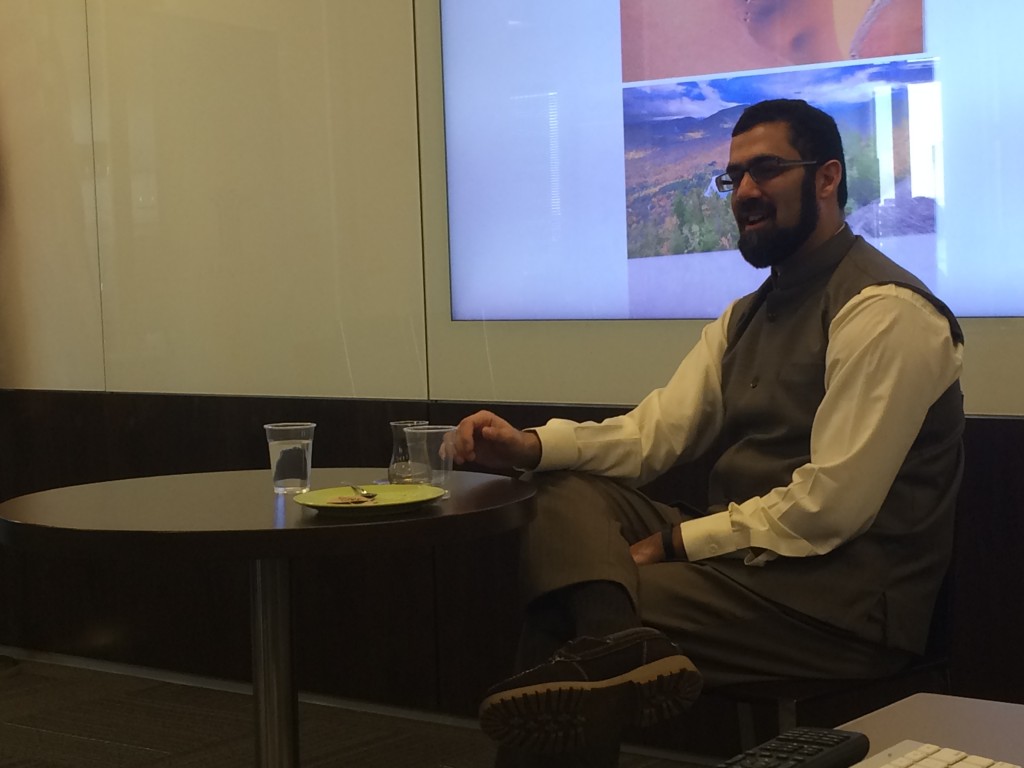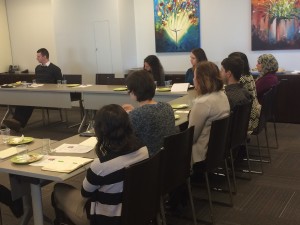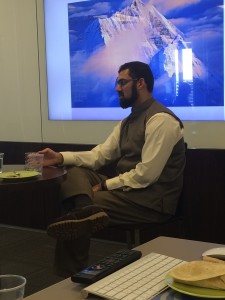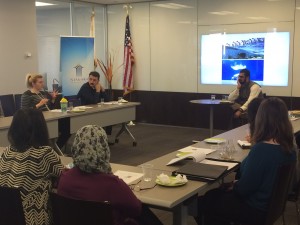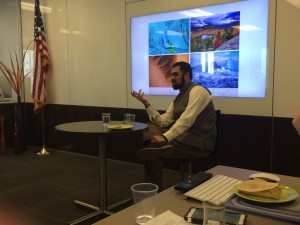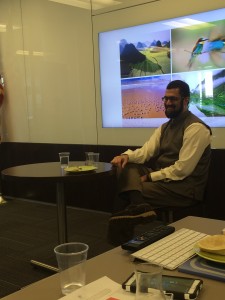On January 12, the Niagara Foundation had the pleasuring of receiving Dr. Aasim Padela for an informative Friends in Faith event on the various issues related to Islam and community health. Dr. Padela is the director of the Initiative on Islam and Medicine at the University of Chicago. This center is the first of its type and has developed into the leading center for research and dialogue on Islamic tradition and biomedicine.
Dr. Padela started his presentation with an informative video (https://www.youtube.com/watch?v=ThX5zbFQzmI) which helped illustrate a unique scenario where a patient’s religion interfered with healthcare decisions. In the video, the patient was considering her health care options, and had to weigh the medical benefits of a mammogram to detect the early stages of breast cancer, versus her desire to maintain her modesty. The video stressed the importance of communication between patient and doctor, because the values of individuals will vary from person to person. Without an effective dialogue, the doctor was unable to effectively treat her patient.
Those attending the lecture directed several pointed questions to Dr. Padela on the relationship of Islam to ethics within the field of medicine. Dr. Padela answered all questions while emphasizing that every patient is unique and that there is no “one size fits all” answer to ethical questions in medicine. A Spring 2015 intern for the Niagara Foundation, Andi Lorch addressed Dr. Padela on the ethical issue of organ transplants within the ethical scope of Islam, “Is organ transplant permissible in Islam and what do theologians say about this?” Dr. Padela expanded on this ethical dilemma and articulated the three distinct stances (no, sometimes, and yes) on this issue. According to Dr. Padela, these positions are theoretically valid if they have their foundation in scripture and they possess a methodology of derived Islamic norms.
Currently Dr. Padela is involved with a project sponsored by the John Templeton Foundation which seeks to address questions about the soul and how the soul is manifested bodily. One intern addressed this research, asking, “In what way does the medical understanding and the Islamic understanding of the soul overlap?” Dr. Padela then discussed the medical understand of the soul’s manifestation on the body. Dr. Padela addressed the scientific question of whether the soul can be reduced just to brain functioning or consciousness.
According to Dr. Padela, “There is no such thing that medically we can access as a soul, and there are neuroscientists who talk about that, that all of the soul is really consciousness. Consciousness arises from brain functions, and you have brain functions that cause consciousness, and therefore there is no soul. Others might say that the soul deals with metaphysics, you can’t rely on physics to answer a question of metaphysics.”
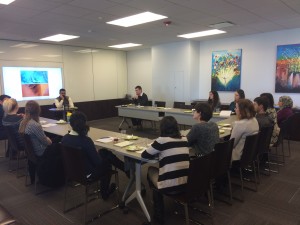
Dr. Padela then continued to address the fact that there is no universal agreement in medicine about the soul nor is there an Islamic universal agreement on the concept of the soul. Dr. Padela continued, “There are two formal discourses relating to the materialism of the soul. The two dominant ideas from the tradition are that the soul is an immaterial substance (not open to empirical investigation) and the other would be that the soul is a solid body (then potentially it is accessible to empirical investigation).”
Questions about the soul are not easily answered, but a good starting point would be to look within ourselves and ask if we acknowledge the potential of a metaphysical reality, or do we reject the concept of empirically unobservable phenomena?
Niagara Foundation would like to offer their sincerest gratitude to Dr. Aasim Padela for participating in the Friends in Faith forum, “Exploring the Encounter of Islam with Biomedicine.”
By Jules A. Peaslee
Communications Intern
January 12, 2016

